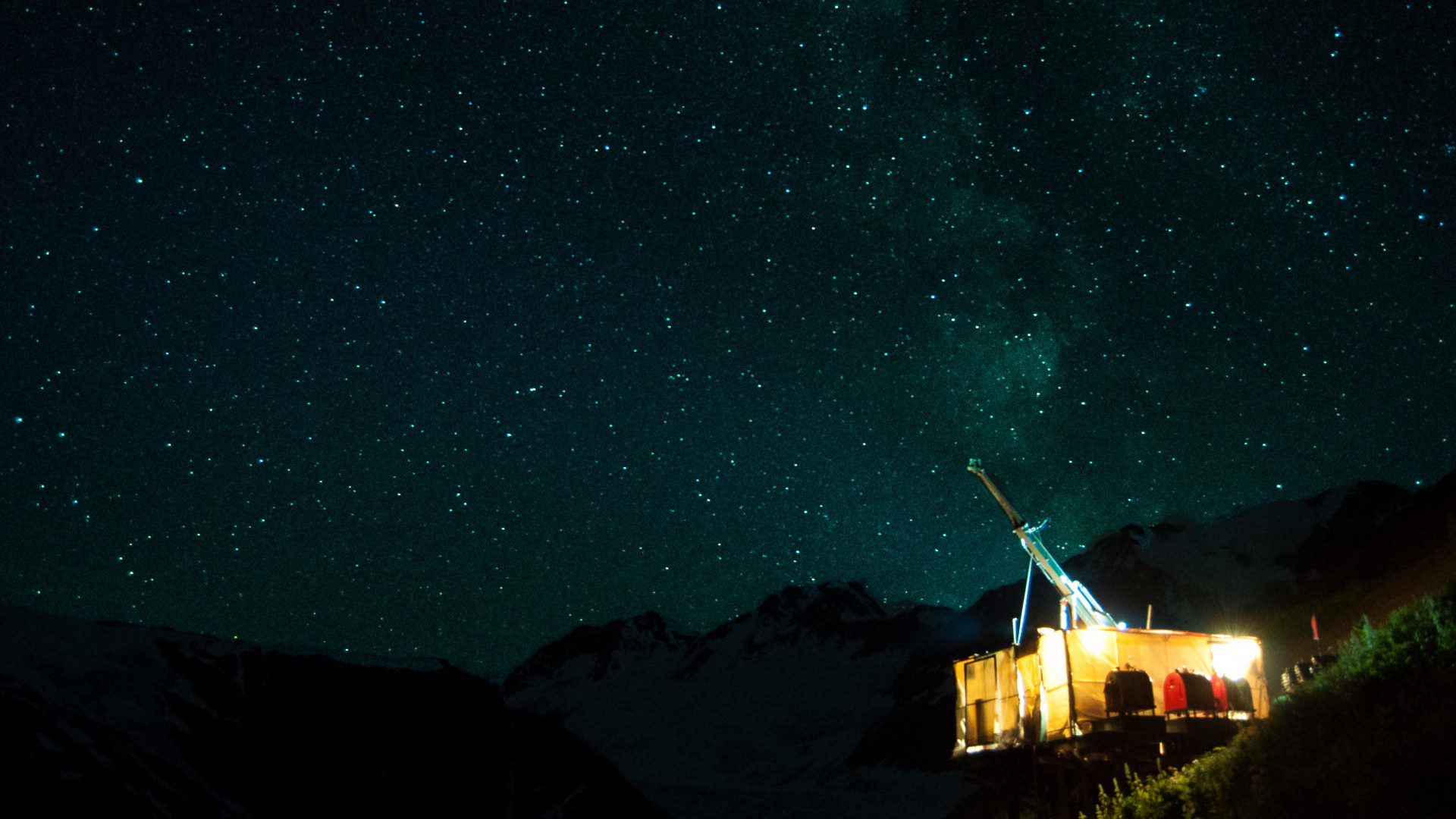“Don’t underestimate the level of effort required” to manage COVID prevention in addition to managing the usual risks
Spring is in the air, and for BC’s mineral explorers, this means heading back to the bush and ramping up activity for the summer field season. Vaccines are rolling out across the province, but we are still in the grips of a pandemic and need to plan accordingly. Thankfully, we can take the lessons we learned in 2020 and apply them this year and beyond. We spoke with Justin Himmelright, Vice President, Sustainability at Skeena Resources – and a Director of the AME Board – about their experience in 2020 and his advice heading into field season 2021.
Last year, Skeena completed a significant infill drilling program at Eskay Creek in the Golden Triangle area of northeast British Columbia and continued to advance the nearby Snip mine. To safely manage almost 250 workers in a remote location during a pandemic, Skeena Resources conceived and implemented a self-directed infection prevention and control plan that resulted in greater than 15,000 COVID-19–free person-days between May 2020 and the end of that year.
“In terms of operating a camp during COVID-19, you can’t underestimate the level of effort that is going to be required,” said Justin, “You really need to strip it back to bare-bones principles and rebuild from the beginning.”
We asked Justin to share some of the key learnings from 2020 that he and the Skeena team are carrying into 2021 as they continue with exploration and resource definition activities at Eskay Creek and Snip.
1. “Get a dedicated health and safety person who knows their stuff.”
Dealing with provincial health regulations that are frequently updated together with labour code requirements and the practical day-to-day requirements of managing COVID-19 safety in a camp is “not half a job,” said Justin. While in the past it may have been possible for the project geologist or Level-3-trained first aider also to take responsibility for health and safety, that is no longer the case. Preventing the spread of COVID-19 is a full-time job.
2. “Be a good neighbour.”
Bringing workers to site from various points outside of your field area and employing local people who will return to their community is a “recipe for transmission,” said Justin. Your staff, your crews, and your contractors need to be sensitive to what is happening in communities, and open communication between companies and communities is critical. An initiative set up by the Tahltan Communities last year involved weekly meetings with the companies working in Tahltan Territory providing a COVID update, including crew movements, number of cases and people in isolation, and more recently, vaccine campaigns.
“If someone’s having an outbreak,” said Justin, “We’re asking what are you missing, how can we help, do you need any assistance? Because whatever is impacting you is going to impact your neighbour.”
3. “Get ready to have some tough conversations.”
Staff, crews, and contractors must be aligned with the processes and procedures to prevent the spread of COVID-19 within the camp and when travelling to and from the project. There may be people who are skeptical or resistant to the requirements. Justin recommends understanding your responsibilities and obligations under the provincial health orders and the labour code and be prepared to implement your COVID-19 plan.
4. “People’s nerves are a bit frayed.”
COVID-19 worries and restrictions have put additional pressure on everyone’s mental health this past year. Justin has observed that people are generally more tired, less productive, and simply worn out from living through a pandemic. Taking care of your own and your team’s mental health is more important than ever, and Justin echoed BC’s Provincial Health Officer Dr. Bonnie Henry’s advice to “Be Calm. Be Kind. Be Safe.” in the field this year.
5. “Don’t lose sight of all of those other things….”
The significant risks associated with helicopters, vehicles and driving, wildlife, weather and more still exist! Although COVID-19 is front-of-mind, it is essential to remember that COVID-19 is an additional risk on top of the usual risks.
Field Safety Beyond COVID-19
Although COVID-19 will be front of mind again this season, another important issue to incorporate into field planning this year is the likely influx of young and inexperienced workers. With healthy exploration budgets and limited options to bring in experienced workers from outside the province, companies may need to take on workers who are less familiar with the risks associated with mineral exploration in BC.
Working around helicopters, driving long distances, weather and wildlife risks remain the highest risks we face. As stated in the 2020 Toward a Safe Day Every Day report: “…three transportation-related fatalities in recent years – two in an airplane crash in 2019 and one in a helicopter crash in 2020 – have demonstrated the need for continued vigilance and the importance of learning from fatalities when they do rarely, but unfortunately occur.”
“The deaths that we have seen in the industry of late are not related to COVID-19, so don’t lose sight of helicopter safety, don’t lose sight of your day-to-day risk assessments, don’t lose sight of all of those other things because those risks have not gone down,” said Justin.
Take care heading back to the bush this year. COVID-19 will still cast a shadow over everything we do, but remember to keep talking about the highest risks everyday and take care of the young and inexperienced members of your crew. We are all in this together.
To stay on top of the COVID-19 guidance affecting explorers in BC, regularly visit our COVID-19 information page on our website: https://amebc.ca/resources/covid-19/
